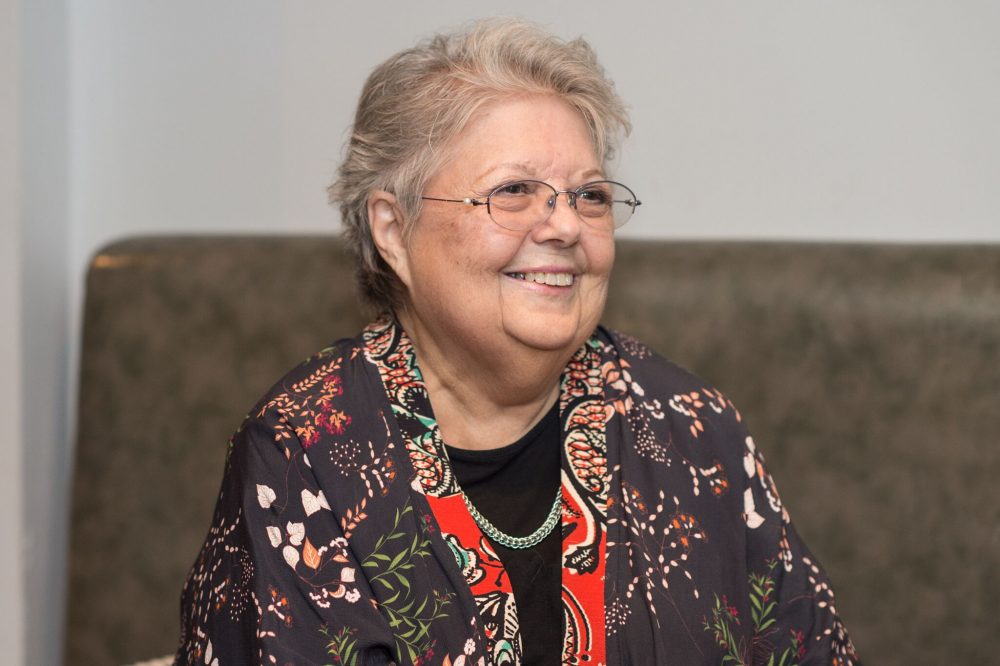
Photo by Joseph Esser.
Barbara Ankersmit is president of research at marketing and communications firm Anthology. Before taking part in a Zócalo/Daniel K. Inouye Institute “Pau Hana” panel discussion titled “If We Love Hawaii So Much, Why Don’t We Vote?” at Artistry Honolulu in Hawaii’s state capital, she spoke in the green room about breeding toy dogs, family barbecues, and the coconut wireless.
What are some of the ways that you and other Hawaii residents engage and connect with each other that are different from the mainland U.S.?
People aren’t joiners like maybe they are in other places. We talk about ohana, or family groupings. It’s more that connection. We call it the ‘coconut wireless.’ On the mainland you might call it the grapevine. The idea is, each person holding a coconut to their ear with a string between it. That’s how word gets around.
An ohana implies an extended family, right, even the entire society in some ways?
Oh, yes! And my ohana is all chop suey. My kids have married people of different ethnicities. With our company, Anthology, we talk about our Anthology ohana. There are different groups and connections.
You wear a lot of different hats, including being president of the Hawaiian branch of the American Civil Liberties Union. What other activities are you involved in?
I’m president of the Hawaiian Kennel Club, because I believe everybody should have a personal passion and a civic passion and a professional passion.
And your personal passion is dogs?
Yes. I breed Papillons, I go to dog shows. Papillon means “butterfly” in French, as you know. They have ears like a butterfly. They’re a very pretty little breed, a toy breed. I used to breed Newfoundlands.
Quite a switch.
My husband died and I decided they were too much care for me, alone.
You’ve also been active in politics for decades. How is campaigning for office in Hawaii different than in other states?
It’s very grassroots. There’s more and more advertising, and they spend more money all the time. But you talk about issues only because they help you understand the candidate: his or her demeanor, how she or he talks. Time and time again, polls and post-polls show people saying, “We’re going to vote for the person we trust.”
And you don’t have negative campaigning in Hawaii?
No! Because people have learned you don’t get elected if you say something bad about the other candidate. Oh, my, and especially if you say something personal.
Does that also extend to the way Hawaii residents engage each other, say, on social media?
Absolutely. You can think something bad, but you’d better keep your mouth shut! I think it’s because we live so close to each other. We can all live differently, but we can accept one another’s differences, and you don’t make remarks or wisecracks about it. And we’re much more into family barbecues than we are in going out to dinner.



